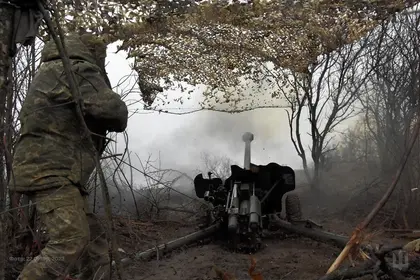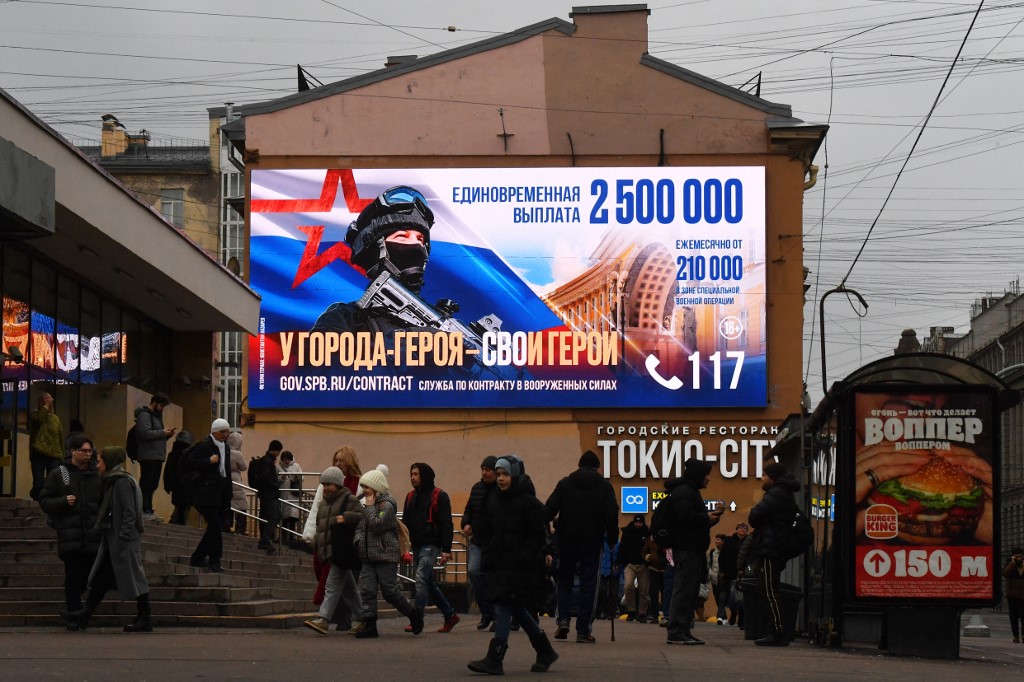Russian Defence Minister Sergei Shoigu was in an upbeat mood on Friday, as he informed Moscow’s top military brass about the latest situation on the front lines in Ukraine.
“Our servicemen are acting competently and decisively, occupying a more favourable position and expanding their zones of control in all directions,” he said, despite little evidence of this being anywhere near true.
JOIN US ON TELEGRAM
Follow our coverage of the war on the @Kyivpost_official.
He also used a very specific phrase to describe the actions of the Russian military, one both he and President Putin have used a number of times in recent weeks – “active defense.”
What is “active defense”?
In military terms, it is defined as: "The employment of limited offensive action and counterattacks to deny a contested area or position to the enemy."
Where is the Russian army currently conducting an active defense?
According to Putin and Shoigu, in Avdiivka.
Isn’t Russia very much on the attack in Avdiivka?
They are – for months now, they’ve thrown wave after wave of men and machines at the Ukrainian defenses in a prolonged and incredibly costly assault to capture the town.
The latest figures suggest Russia is losing more men per day right now than at any other point in the entire war, with seven-day daily averages regularly topping 1,000 men.
It in no way has been an “active defense” by any definition of the term.
Why are they using the term then?

Russia-US Contacts ‘Have Intensified’ Recently, Kremlin Says
According to the Institute for the Study of War (ISW), Putin and Shoigu are deliberately using the term in order to “temper expectations about the Russian military’s ability to achieve operationally significant objectives.”
It adds: “Russian officials’ characterization of these offensives as being part of an ‘active defense’ are intentionally misleading.
“Ukrainian forces have never conducted offensive operations at scale in the Avdiivka area since the beginning of Russia’s full-scale invasion of Ukraine in 2022, and Avdiivka has been a famously static Ukrainian defensive position since 2014.
“Russian leadership has nevertheless continued to falsely frame operations around Avdiivka as an ‘active defense’ likely to recontextualize the lack of any major Russian progress around Avdivka despite over two months of large-scale Russian attacks there.”
In short, as soon as the Kremlin describes the assault as an offensive action, it raises the expectation among the Russian population that Avdiivka will be captured, something it clearly doesn’t fully believe it can achieve.
And with a presidential election next year, Putin will do anything to avoid anything that could be viewed as a failure in Ukraine.
But this disconnect between reality and rhetoric can only last so long.
The ISW concludes: “The increasing disconnect between heavy Russian losses in these offensive efforts and the Russian command’s framing of these operations may nevertheless fuel discontent in the wider Russian information space.”
You can also highlight the text and press Ctrl + Enter









